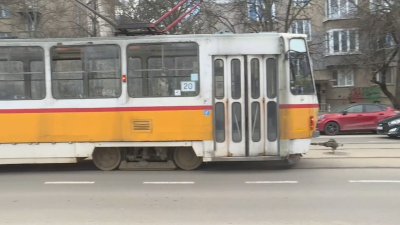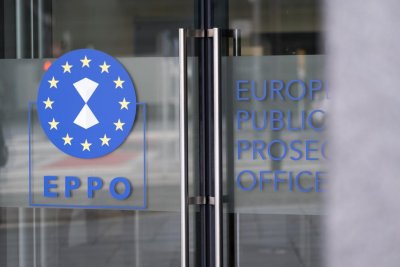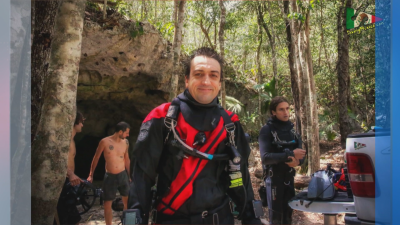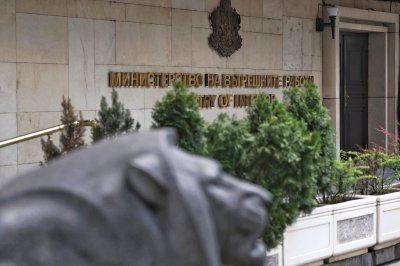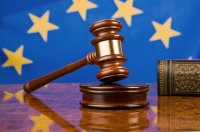The President of the Republic of Bulgaria, Rumen Radev, has signed and submitted a proposal to the 51st National Assembly for holding a national referendum with the following question:
"Do you agree that Bulgaria should adopt the single European currency – the euro – in 2026?"
This was announced by the President’s Office on May 12. The proposal, along with the President’s accompanying motives, was submitted to the parliamentary registry.
On the basis of Article 10, paragraph 1, item 2 of the Law on Direct Participation of Citizens in State Power and Local Self-Government, President Rumen Radev has submitted a proposal to the 51st National Assembly to hold a national referendum with the following question: “Do you agree that Bulgaria should adopt the single European currency, the euro, in 2026?” The proposal and its accompanying rationale, signed today by the Head of State, have been submitted to the Parliament’s registry.
PROPOSAL
BY THE PRESIDENT OF THE REPUBLIC OF BULGARIA
TO THE 51ST NATIONAL ASSEMBLY FOR HOLDING A NATIONAL REFERENDUM
Honourable Members of Parliament,
Pursuant to Article 10, paragraph 1, item 2 of the Law on Direct Participation of Citizens in State Power and Local Self-Government, I hereby propose the holding of a national referendum with the following question:
“Do you agree that Bulgaria should adopt the single European currency, the euro, in 2026?”
I respectfully request that, on the basis of Article 84, item 5 of the Constitution of the Republic of Bulgaria, the National Assembly adopt a decision to hold a national referendum on this question.
RATIONALE
TO THE PROPOSAL BY THE PRESIDENT OF THE REPUBLIC OF BULGARIA FOR HOLDING A NATIONAL REFERENDUM
Under the terms of the Treaty of Accession to the European Union, the Republic of Bulgaria has committed to adopting the single European currency. However, no explicit deadline for the adoption of the euro is set in the treaty.
On 4 June 2025, an extraordinary convergence report is expected to be released, assessing Bulgaria’s readiness to join the euro area. If the outcome is positive, Bulgaria is expected to join the eurozone on 1 January 2026.
There is no consensus in Bulgarian society regarding the country’s readiness to adopt the single European currency, nor on the timing of such a step. Assessments vary widely across society – among citizens, experts, and political leaders. Sociological surveys clearly indicate that a majority of Bulgarian citizens remain strongly hesitant about replacing the national currency at this time.
The government requested the extraordinary Convergence Report without first conducting a comprehensive public awareness campaign or facilitating an in-depth debate on both the potential benefits and real risks of joining the eurozone without sufficient preparedness.The lack of clear planning and decisive action by the responsible institutions to safeguard citizens’ purchasing power and the competitiveness of the national economy is causing growing public concern over the euro adoption process.
Instead of fostering a genuine understanding of the issue, the public was presented with a promotional campaign that failed to convince citizens of the country’s readiness for such a significant transition.
The fact that institutions with critically low public legitimacy are making strategic decisions about our common future without heeding the voice of the people only deepens societal tension.
As President, I am convinced that the adoption of the single European currency can and must take place through the establishment of a strong national consensus and with the genuine support of the population — not through dismissive disregard of the public will. Every Bulgarian citizen has the right to a say regarding their money and well-being.
The national currency — one of the symbols of statehood — is an indivisible and vital element of national security and sovereignty. According to Article 1, paragraph 3 of the Constitution of the Republic of Bulgaria, no part of the people, no political party or organization, no state institution or individual may usurp the exercise of popular sovereignty. Therefore, given the current lack of clarity regarding our preparedness to transition to a new monetary unit, and the widening gap between public sentiment and institutional action, it is necessary to exercise the sovereign will of the people through the holding of a national referendum.
This referendum will serve as a test of the democratic integrity of the 51st National Assembly. It will show who upholds democratic principles and who would deny Bulgarians the right to determine their own future.
The referendum will have a rehabilitating effect on Bulgarian democracy. It will give voice to the people and allow all arguments to be heard. It will offer the political class an opportunity to re-engage with voters and begin to rebuild the trust it has lost in recent years.
The nationwide referndum will bring thousands of citizens back to the ballot box. Bulgarian democracy is in critical need of such a surge in legitimacy.
Importantly, regardless of its outcome, the referendum will contribute to forging a national consensus on the issue of euro adoption and will help prevent the consequences of decisions taken without the support of the majority of Bulgarian citizens.
Such a referendum would not be without precedent. Other EU member states have already held referenda on euro adoption. Several countries, which joined the EU before Bulgaria and with far stronger economies, continue to maintain their national currencies until public consensus is reached.
Any attempt to frame my proposed referendum on euro readiness as a vote “for or against” Bulgaria’s European future would be a gross manipulation. Bulgaria is a full member of the European Union, and it has the sovereign right to determine the timing of its euro adoption. That right belongs to the Bulgarian people.
In accordance with the powers granted to me under the Law on Direct Participation of Citizens in State Power and Local Self-Government and based on Article 10, paragraph 1, item 2, I submit to the National Assembly a proposal to hold a national referendum with the following question:
“Do you agree that Bulgaria should adopt the single European currency, the euro, in 2026?”
RUMEN RADEV
PRESIDENT OF THE REPUBLIC OF BULGARIA
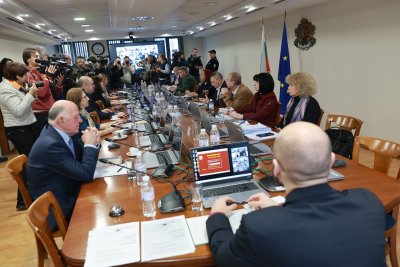

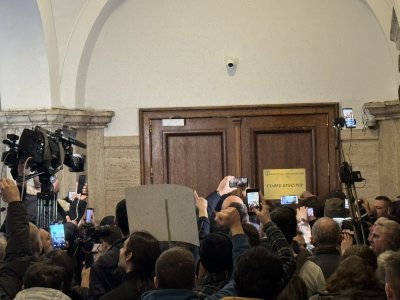
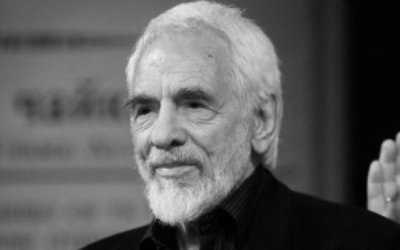
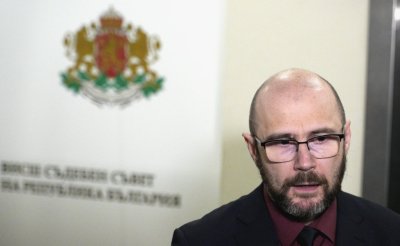






 Чуй новините
Чуй новините Подкаст
Подкаст
